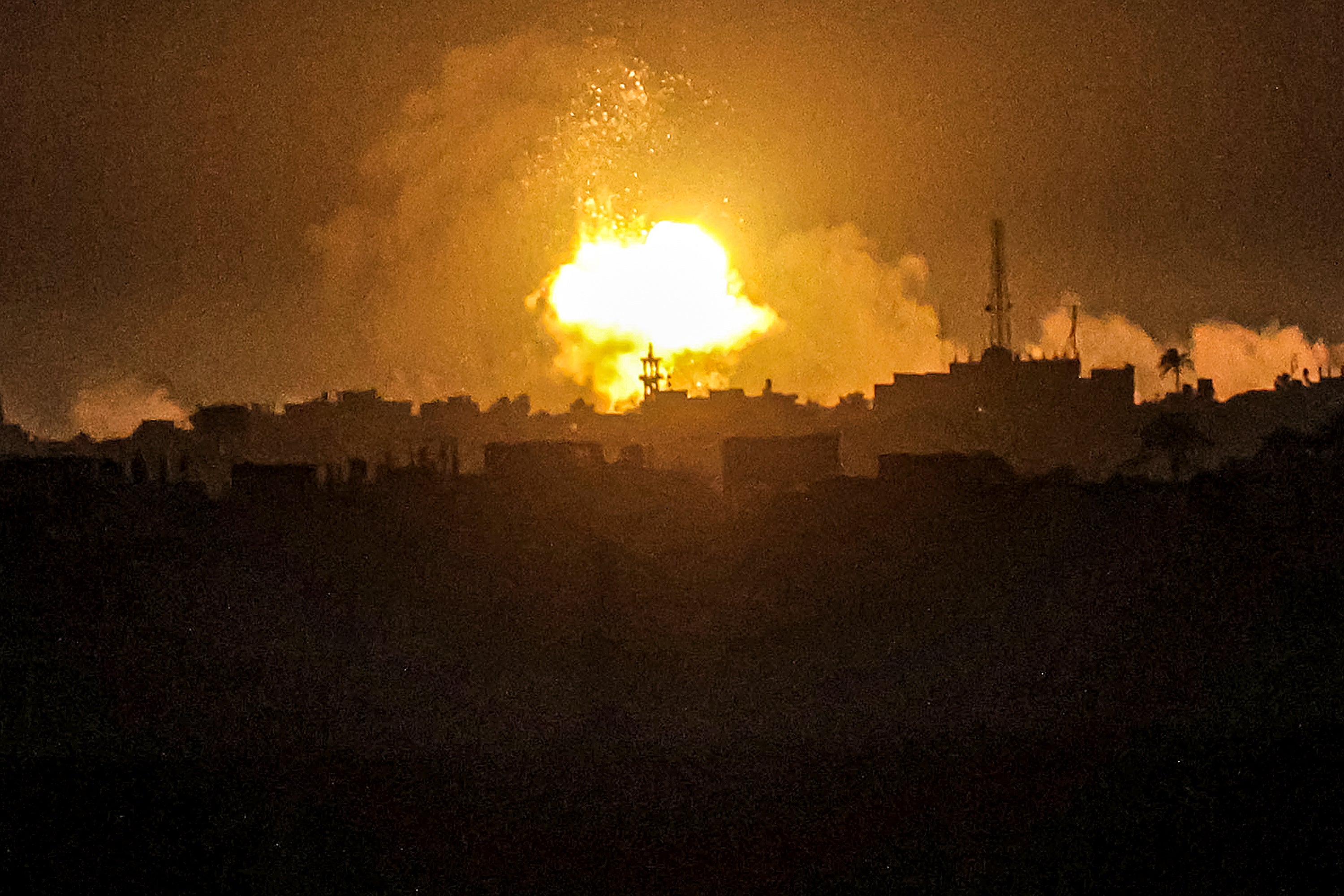Met Police defends its investigation into Israel-Gaza ‘war crimes’
Scotland Yard rebuffs attack by Boris Johnson, saying international treaty makes probe obligatory
Your support helps us to tell the story
From reproductive rights to climate change to Big Tech, The Independent is on the ground when the story is developing. Whether it's investigating the financials of Elon Musk's pro-Trump PAC or producing our latest documentary, 'The A Word', which shines a light on the American women fighting for reproductive rights, we know how important it is to parse out the facts from the messaging.
At such a critical moment in US history, we need reporters on the ground. Your donation allows us to keep sending journalists to speak to both sides of the story.
The Independent is trusted by Americans across the entire political spectrum. And unlike many other quality news outlets, we choose not to lock Americans out of our reporting and analysis with paywalls. We believe quality journalism should be available to everyone, paid for by those who can afford it.
Your support makes all the difference.The Metropolitan Police have defended their investigation of alleged war crimes in the Israel-Gaza war, saying they are obliged to by an international agreement.
Boris Johnson and other critics have hit out at the decision by Scotland Yard to appeal for information from anyone returning from Israel or the Palestinian territories who thinks they have seen war crimes, terrorism or crimes against humanity.
Counterterror police have put up posters in Arabic and English at key British airports, including Heathrow, that read: “If you have been in Israel/Palestinian Territories and have witnessed or been a victim of terrorism, war crimes or crimes against humanity, then you can report this to the UK police.”

The ex-prime minister told The Telegraph he feared it marked a “worrying politicisation of the Met Police”.
Social-media users expressed surprise that the Met Police had a war crimes unit, and some critics said the force for London should be spending its resources tackling crime in the capital.
Mr Johnson said: “When I was mayor of London, I made clear that we would not import foreign wars or disputes onto the streets of London. The Met would be better off fighting knife crime in the capital.”
But the force said that under the 1998 Rome Statute, which established the International Criminal Court (ICC), its war crimes team was obliged to support any investigations by the court that could involve Britons.
A Scotland Yard spokesman said: “As the UK’s investigative authority for war crimes, Counter Terrorism Policing – through the Met’s war crimes team – has a responsibility to support International Criminal Court (ICC) investigations.
“The ICC opened an investigation in 2019 into alleged war crimes in Israel and Palestine and this remains ongoing.”
He said the war crimes team had received more than 40 referrals in recent weeks over the conflict in Israel and Palestine, including some from people who had recently returned from the region.
“These are being looked at in line with our usual guidelines for assessing such referrals relating to allegations of war crimes. Any information that is assessed as being relevant to the ongoing ICC investigation into the Palestine situation will then be passed to the ICC as appropriate.
“There is currently no UK-based investigation in relation to this matter.”
The spokesman added that with higher numbers of Britons returning from the Middle East, the Met was signposting people to where to report evidence.
The Counter Terrorism Command is also collecting evidence on the terrorist attack on Israel on 7 October for use in inquests on British people who were among the 1,200 people killed when Hamas militants raided Israel.
In 2022, the Met’s war crimes unit launched appeals for information on Russian president Vladimir Putin’s war on Ukraine, which started the month before, calling for information dating as far back as 2013. The unit assesses which information it will forward to the ICC.
It has a page available in both Ukrainian and Russian for such crimes, including torture, genocide and crimes against humanity, to be reported.
In the 1990s, the war crimes unit investigated a British pensioner in Germany for his alleged role in the Holocaust in World War Two after his son sent them a dossier of evidence, the BBC reported.
It’s understood the unit also looked into claims of war crimes following the 2015 Tunisia massacre, when a gunman opened fire on tourists, killing 38, mostly British.
Join our commenting forum
Join thought-provoking conversations, follow other Independent readers and see their replies
Comments